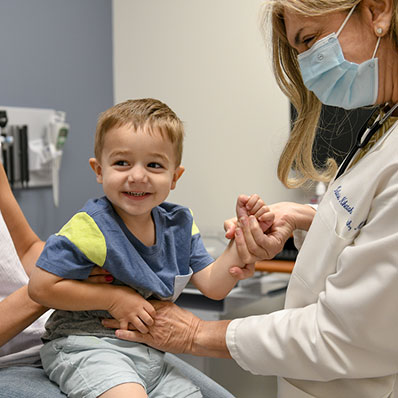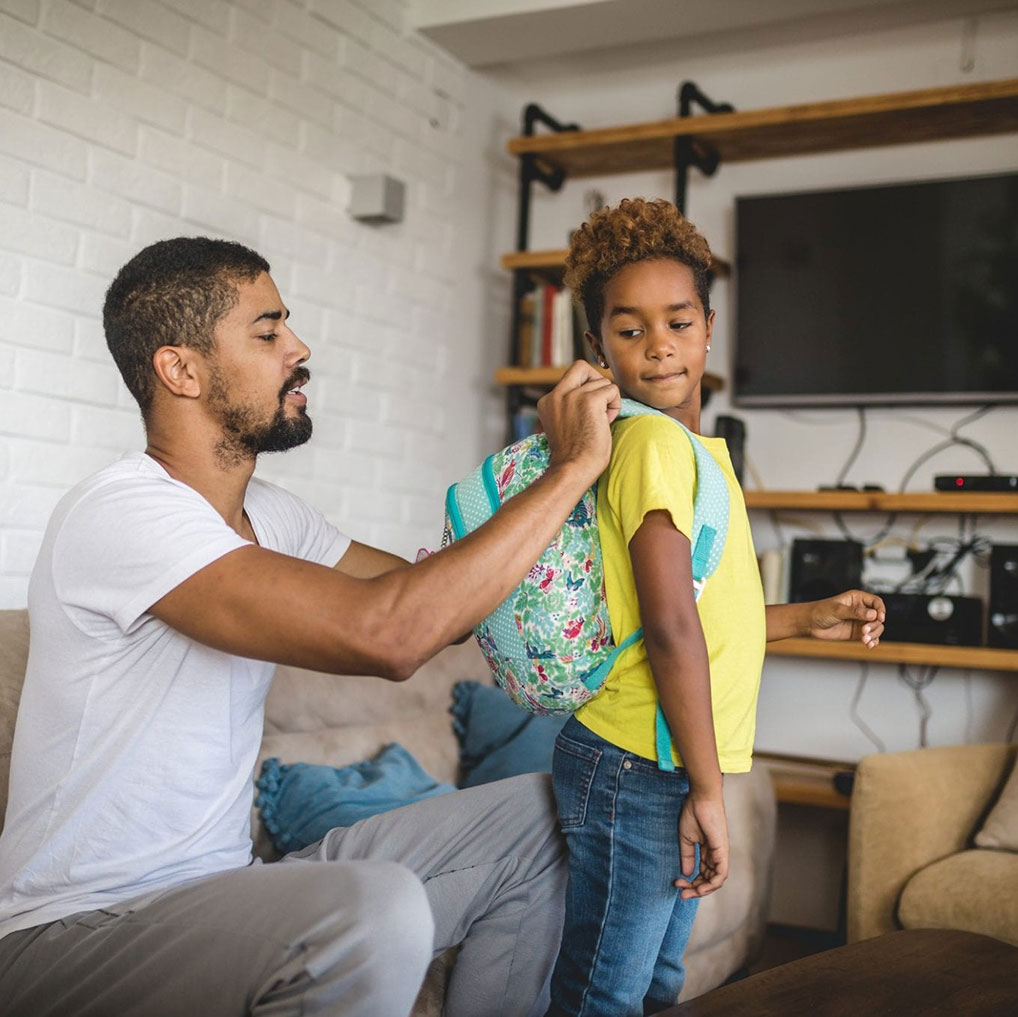Back-to-School Health Fuel: Doctor-Approved Advice You Should Know

August 20, 2018
Stress, insufficient sleep, and a poor diet often result in a few not-so-ideal and not-so-strong first days back. Erin McFeely, M.D., a board certified pediatrician at Hackensack Meridian Health Medical Group – Pediatrics, offers tips to help parents get their kids ready for a healthy start to the new school year:
Get vaccinated.
Certain shots are required at different life stages to protect children and others against diseases. The Centers for Disease Control and Prevention (CDC) states that:
- children heading into kindergarten are required to get Diphtheria/tetanus/pertussis (DTaP), Polio, measles/mumps/rubella (MMR), and varicella (chickenpox) booster shots,
- whereas children entering sixth grade are due for their first doses of Tetanus/diphtheria/pertussis (Tdap) and meningitis shots.
It is also recommended that everyone ages 6 months and older receive the COVID-19 vaccine. COVID-19 vaccine and other vaccines may be administered on the same day.
“Parents should contact their child’s pediatrician for more information on the recommended shots and vaccination requirements,” says Dr. McFeely.“Don’t forget to schedule that flu shot, too!” adds Dr. McFeely. “It is recommended that every child six months and older get the flu shot once a year.”
Set screenless bed times.
According to the American Academy of Pediatrics (AAP), the suggested amount of sleep depends on a child’s age:
- younger kids aged 6-12 need about 9-12 hours of sleep,
- while teenagers need only about 8-10 hours.
Dr. McFeely encourages parents to move their child’s bedtime back 15 minutes for 1-2 weeks prior to the start of the new school year while also waking up earlier.
“I realize that this isn’t always so practical, though,” jokes Dr. McFeely.“I, too, am a mom and we love to get every minute out of the waning summer days. Try to find that balance and ease back into a routine.”
In addition, if parents are finding that their child is having a hard time falling asleep, Dr. McFeely recommends turning off electronic devices 1-2 hours before bedtime. “To help with the winding down process, shut the screens off! The brightness makes it extremely difficult to fall asleep and tricks the brain. Instead, encourage your children to read, draw, or play a card game,” she says.
Practice good hygiene.
“Let’s face it, hygiene is really out of your hands once your child enters his or her school. But you can practice good hygiene, such as washing hands before and after eating or using hand sanitizer, and hope it sticks and becomes a habit,” says Dr. McFeely.
Prepare healthy lunches.
Try to pack a variety of nutritious lunches that are full of fruits, vegetables, and protein. “It is totally okay to include a treat, but keep it small!” says Dr. McFeely. “And avoid the sports drinks and juices with the added sugars. Stick to water, milk, or flavored seltzers.”
Make sports safety a priority.
For parents of little athletes, make sure that your child is staying hydrated, guarding their teeth, stretching before and after games, and conditioning ahead of time to decrease injuries throughout the season. “Also make sure that you are not ignoring sports injuries. A minor injury can turn into something major if it goes undiagnosed and untreated,” says Dr. McFeely.
Identify signs of stress, anxiety, and depression.
“There are numerous factors that can contribute to your child feeling ‘off,’ such as homework, social media, after-school activities, and hormones,” says Dr. McFeely. “If you notice that your son or daughter is being distant or not really caring, definitely talk to your child’s pediatrician.”
“It’s never too late to introduce these tips little by little into your family,” adds Dr. McFeely. “Here’s to a healthy, happy back-to-school season!”
Next Steps & Resources:
- Meet our sources: Erin McFeely, M.D.
- To make an appointment with a pediatric specialist near you, call 800-822-8905 or visit our website.
The material provided through HealthU is intended to be used as general information only and should not replace the advice of your physician. Always consult your physician for individual care.





